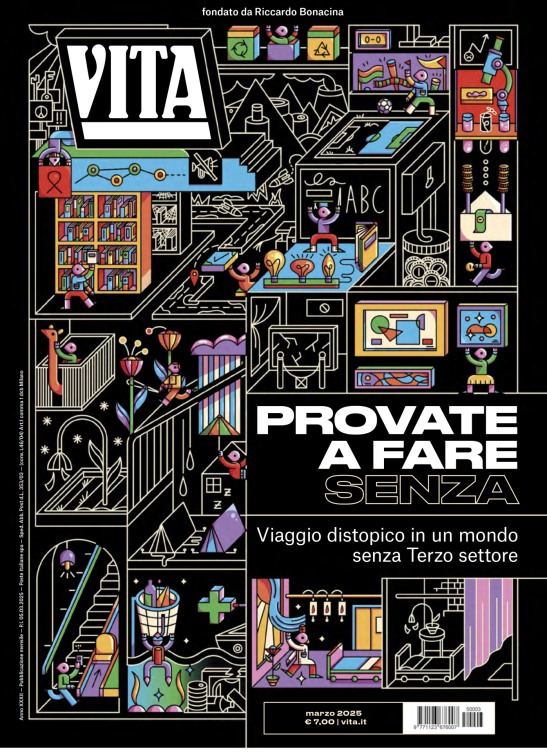The great t-shirt gaffe
Social media enables the aid world to hold 1 Million T-shirts, and its founder Jason Sadler, accountable

On April 27, 2010, Jason Sadler, a successful American entrepreneur, and his aid project 1 Million T-shirts became the focus of heated discussion amongst actors in the international aid community via Twitter and other forms of social media.
The idea was to collect a million second hand t-shirts and to send them to communities in different African countries. Critics tweeted and blogged that this type of gift in kind aid is not only unnecessary but actually counterproductive to development.
Such excitement was created from these online debates that three days later, on April 30, Sadler and those same actors participated in a roundtable international teleconference to discuss his idea and how it could be transformed, so to have a more meaningful impact on the communities the project was trying to help.
I wear your shirt
In 2008, Sadler started an online marketing company called Iwearyourshirt.com. For a small fee Sadler wears a company’s logo on a t-shirt. He then uses different social media networks to promote the company throughout the day that he is paid to wear their logo.
The bottom line is that in the past two years Sadler has made an average of $75,000 selling his torso as ad space.
In March 2010, in partnership with H.E.L.P. International and WaterIsLife.com, Sadler launched his own charity 1 Million T-shirts. To date the organization has collected 625 t-shirts to be donated to countries in Africa.
In a promotional video on the site Sadler stated “some people [in Africa] only have half a shirt to their name,” suggesting that there is a shortage of t-shirts across Africa. Sadler has since apologized for comments of this nature.
Criticism
On April 27, the tweeter @jonvwest posted a link to the 1 Million T-shirts website with the tag “well at least they’re ambitious.”
Aid actors responded instantly, strongly criticizing the project and often personally attacking its founder.
This type of aid is “about the donor, not the recipient” stated the blogger Tales from the hood.
“This initiative – put bluntly – is a regretful waste of your time and money” added Siena Antis, blogger and Communications Advisor with BOSCO-Uganda.
“Jason Sadler’s project assumed Africa had a dire need for t-shirts but ignored our fledgling textile industries, the crushing weight of the second-hand clothing industries on the continent, and altogether dismissed our dignity as recipients of someone else’s cr#p” said Teddy Ruge, blogger and co-founder of Project Diaspora.
Sadler responded by posting an online video where he referred to this type of criticism as “hatorade”(sic) and stated “I’m just trying to do something good… something that has an impact.”
Change in tone
As the discussion continued over the next few days, both sides became more willing to engage in discussion about how the project could be reshaped to better serve its recipients.
Bloggers, active in international aid and development, posted open letters to Sadler and his organization explaining their worries about the negative impact of his project and offered alternative ways in which he could make a difference.
Sadler responded with a second video post in which he said “I’m going to read all of your blog posts, I’m going to address the issues that I can.”
Sadler proved resistant, however, to calls from opponents to stop collecting t-shirts and to instead use his social media contacts and marketing skills to raise money for already established aid organizations. Sadler maintained that t-shirts would still be a central part of any project.
Finally on Friday, both parties came together via a web conference to discuss the issues and to try and find a way to redirect Sadler’s energy and efforts. The teleconference was open to any interested bodies.
Social media
The incident demonstrates how social media is being used to facilitate international discussion on topics like international aid.
Despite Sadler’s repeated call to take the debate “off the internet,” by Friday there were over 30 blog posts on the subject. The teleconference was attended by actors from all five continents, according to Ruge.
Many actors hailed the use of social media as a victory for transparency and public involvement.
The conference
During the teleconference the debate moved beyond the focus of just Sadler’s project and became a conversation about the image of Africa abraod and about defining “god aid.”
The idea that Africa needs saving or that it doesn’t produce basic goods like t-shirts was what infuriated people the most. “The misunderstanding Jason had is so prevalent” said Saundra, a caller participating in the conference.
Callers from Uganda and Liberia stressed that those who want to help in Africa should look to form partnerships with organizations already in Africa – both private and aid organizations.
The role of a strong private sector was stressed as a key element to African development. “I welcome Jason as a partner in going forward, to start a new conversation. Start thinking about generating business, not aid” Ruge, who is from and works in Uganda, added.
Conclusion
After the conference, several participants blogged about the experience. While there was a general consensus that the conference was a step forward in the debate, many pointed out that the intended aid recipients and the two charities that Sadler had partnered with also should have been present at this roundtable.
As Linda Raftree, a blogger and Advisor at Plan International, put it “all this access to all these perspectives and on-line debate and open participation is great for me. And for you. Because we read English and have access to the internet.”
As for Sadler’s partners, H.E.L.P. International and WaterIsLife.com, Keizer noted that “they have a lot to answer for [because they encouraged Sadler and his idea] but did not participate.”
While the fate of the project is still undecided, Sadler has posted on the organization’s site that the project plans to “correct the messaging and the focus of [its] efforts to help make a difference.”
Nessuno ti regala niente, noi sì
Hai letto questo articolo liberamente, senza essere bloccato dopo le prime righe. Ti è piaciuto? L’hai trovato interessante e utile? Gli articoli online di VITA sono in larga parte accessibili gratuitamente. Ci teniamo sia così per sempre, perché l’informazione è un diritto di tutti. E possiamo farlo grazie al supporto di chi si abbona.
